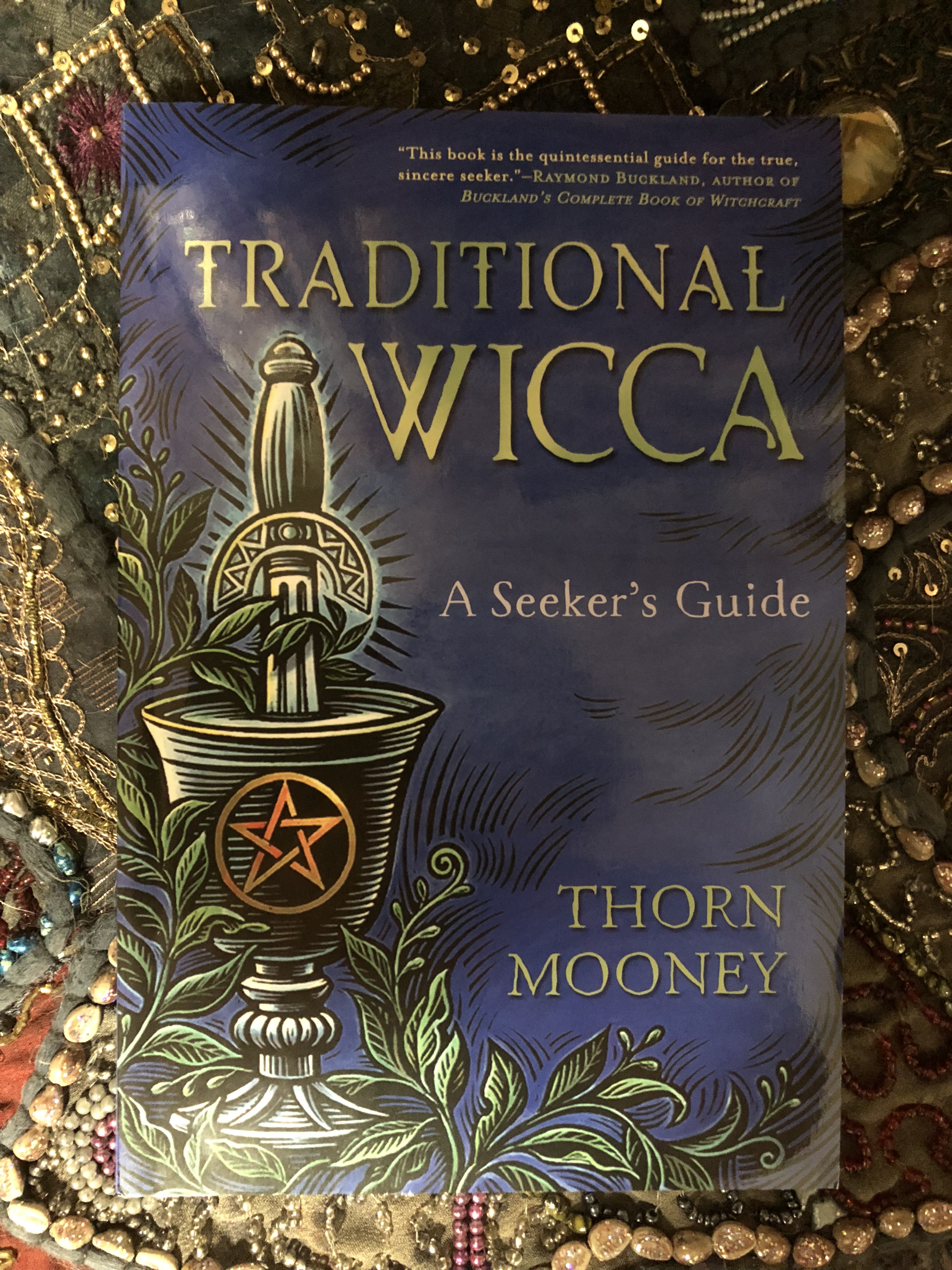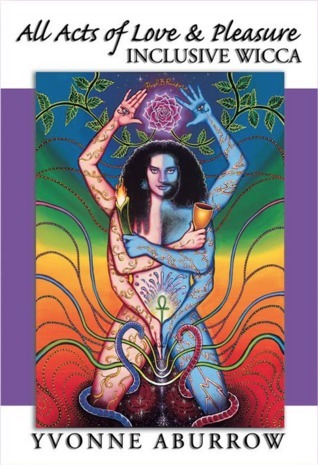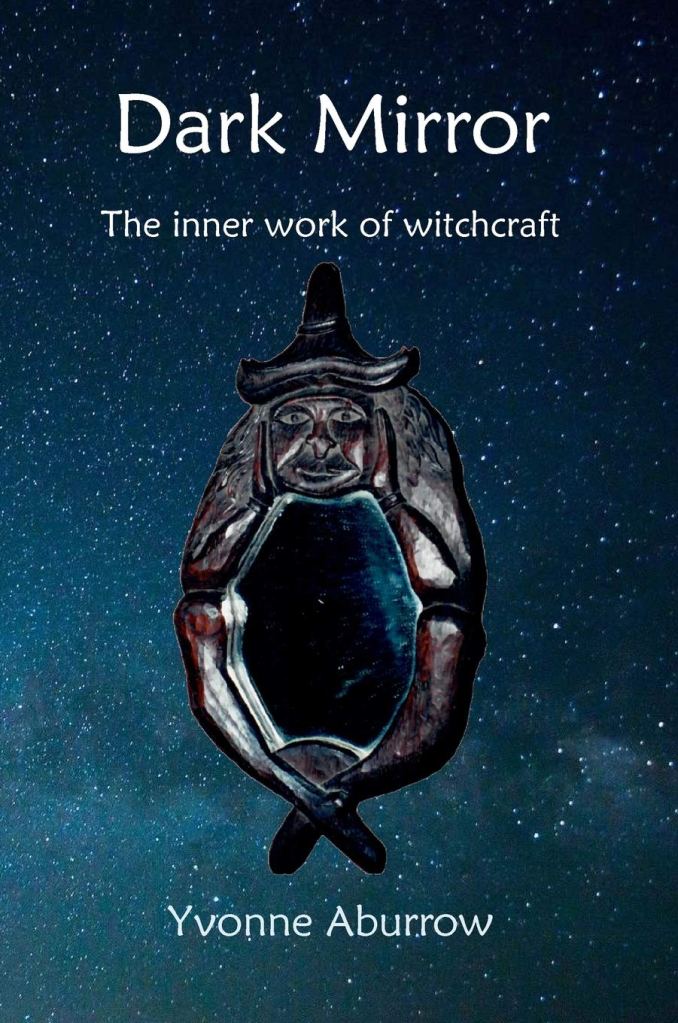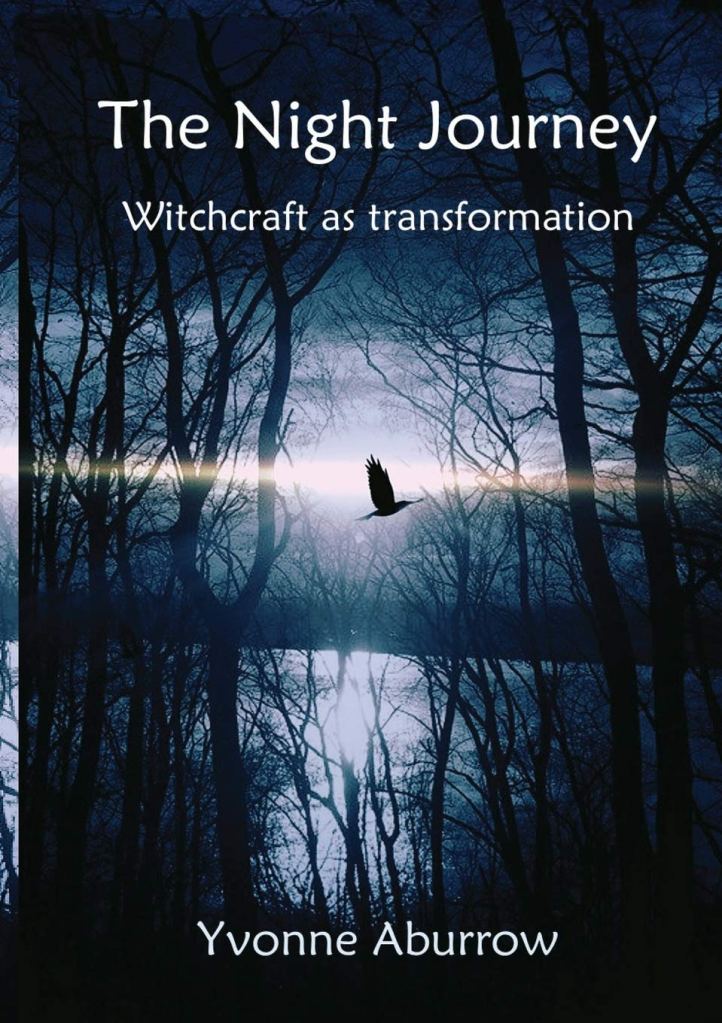If you are looking for a clear explanation of lineaged, initiatory witchcraft, this is it. If you are looking for a coven, thinking of joining a coven, or merely curious, I would recommend reading this book. Even if you are an experienced Wiccan initiate, you could benefit from the perspectives offered in this book.
If your coven is open to seekers, this book should go straight to the top of your recommended reading list, for seekers, new initiates, and even old hands. It’s clearly written, engaging, well-structured, and scholarly.
The reference to traditional Wicca in the title refers to lineaged, initiatory Wiccan traditions with a degree system and a shared body of lore and rituals.
The book first of all describes what traditional Wicca is, what distinguishes it from non-lineaged and non-initiatory forms of Wicca and witchcraft, and a bit about its history.
Mooney does an excellent job of clearing up some of the major misconceptions about Wicca. One of these is the purpose of the degree system (I and several others also liken it to the guild system of apprentice, journeyman, master). She tackles the concept of hierarchy in this system very well indeed. I’ve always shied away from the word hierarchy, but she tackles it head-on, and does a great job of rehabilitating it.
Another source of angst and misunderstanding is the practice of working skyclad. The section discussing this is excellent, indeed one of the best I have read, and explains it really well.
I also liked the section on initiation and what makes it different from self-initiation (again, similar to my own ideas on the subject). My take is that self-initiation may confer psychological transformation and an encounter with the gods, but by definition, it cannot confer group membership, lineage, or access to the knowledge of a specific tradition. Mooney does an excellent job of explaining the academic theory around the concept of initiation, too.
There’s an important section about red flags and safety, many of which are similar to the red flags and safety checks for online dating.

There are some things that I would have given more emphasis to, and other things that I would have given less emphasis to, but that’s why more than one book about the Craft exists!
It must also be stated that this book is about seeking and joining a coven in the USA, where there are numerous other witchcraft and Wiccan traditions besides the ones that are available in the UK. There are also slight differences of practice and emphasis between Wicca in Britain, Canada, the USA, and Europe. As this book is written by an American, the emphasis is primarily on the Craft in the USA.
However, the key points, such as the distinguishing features of traditional Wicca, what makes a good coven, which seekers are likely to be successful at finding a coven, and the etiquette of seeking and being in a coven, are all commonalities across cultures.
One bit that made me laugh out loud in sympathy was the observation that the best asset of every seeker is good manners – this is so, so true. I once turned someone down as a potential trainee because he didn’t thank me for giving him a lift home – and all subsequent interactions with this individual have convinced me that I was right to turn him down. Lazy and entitled people don’t make good initiates.
There are so many great things about this book (and I’m not just saying all these nice things because my book is listed in the recommended reading – I genuinely think this is a super helpful book).
There are also some beautiful poetic evocations of being in a Wiccan circle, and some really helpful magical and life advice, including a lovely section on the Witches’ Pyramid for new initiates.
The checklist of questions for seekers to ask themselves, and the outline of what to put in an initial inquiry email, are also really good.
The author also takes great care to avoid excluding LGBTQIA+ people from the picture, which is good. LGBTQIA+ people are welcome in the vast majority of covens, even if some are heterocentric.
If all coven leaders, seekers, trainees, and initiates took the advice in this book to heart, it would save a lot of hassle.
Buy it, read it, recommend it to your friends!
If you enjoyed this post, you might like my books.



Pingback: Books I’ve read in 2018 | Dowsing for Divinity